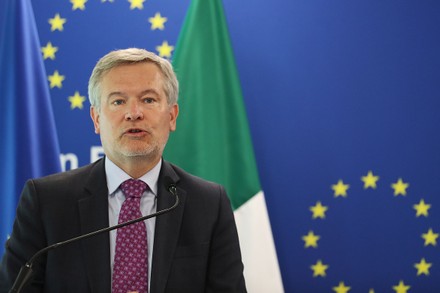1.2K
By Tracy Moses
The European Union (EU) has forged an agreement with the Federal Government to curb the growing waste production in the fashion and textile industries.
This initiative aligns with the United Nations (UN) global zero-waste movement, which aims to recycle and repurpose waste from the textile sector.
The EU Ambassador to Nigeria and ECOWAS, Gauthier Mignot shared this development in Abuja on Tuesday, stressing the urgency of managing the waste generated by the textile industry.
He stated that the sector produces a staggering 92 million tons of waste each year.
Mignot emphasized the significant environmental and social consequences of this waste, noting its harmful effects on biodiversity and public health, particularly for vulnerable populations in Nigeria.
The announcement came as part of events marking this year’s International Zero Waste Day, established by the UN General Assembly in December 2022.
The day, observed annually on March 30th, promotes sustainable consumption practices and supports the transition to a circular economy.
He noted that this year’s theme – towards zero waste in fashion and textile – underscores the environmental and social challenges caused by fashion and textile sectors in their business model, which drives overproduction and overconsumption.
“The use of fossil fuel-based synthetic fibres contributes to micro plastic pollution, harming ecosystems and human health. Discarded clothing often leads to open dumping, burning, and severe environmental and social consequences, disproportionately affecting vulnerable communities.
“This is why the EU continues to work closely with our Nigerian partners to address waste generation problems associated with the linear economy in Nigeria,” he said.
Highlighting EU’s efforts to promote the circular economy, Mignot explained that currently, the EU and the Ministry of Environment, together with United Nations Industrial Development Organization (UNIDO), co-chair the Nigeria Circular Economy Working Group, which brings together all strategic stakeholders to promote circular economy principles and practices to achieve inclusive green growth.
Some initiatives that the Group has worked on together include the National Policy on Waste Battery Management (2021), National Environmental Standards and Regulations Enforcement Agency’s (NESREA) National Environmental Regulation on Plastic Waste Control (2023), as well as the National Circular Economy Roadmap (2024) launched during last year’s International Zero Waste Day celebration. “Our latest project with UNIDO is to address waste from the renewable energy sector like solar panels and batteries,” he added.
Director-General and Chief Executive Officer of the National Environmental Standards and Regulations Enforcement Agency (NESREA), Innocent Barikor, restated the agency’s commitment to promoting the circular economy. He said, “Because we are at the forefront of promoting the circular economy, it excites us when we are part and parcel of the configuration of this nature that attempts to promote, and indeed, promotes the circular economy, encouraging our people to begin to accept zero waste.
“We want to thank the European Union for always being there. Moving forward, we believe that there is more space to work on, and we will be glad to continue to explore the various possibilities and opportunities that this place provides for us in terms of our work. We look forward to more collaboration and partnership.”
The Minister of Environment, Balarabe Lawal, lauded the efforts of the EU, along with NESREA, local Non-Governmental Organisations and other relevant stakeholders in organising the event.
He noted that the event aligns with Nigeria’s commitment to sustainable waste management and the global zero waste agenda, adding that this year’s theme highlights the urgent need to reduce waste and promote circularity and responsible production and consumption.
The Minister, who was represented by the Director, Pollution Control and Environmental Health Department of the Ministry, Omotunde Adeola said, “Nigeria faces significant waste management challenges in the textile sector. The fashion industry is rapidly growing, resulting in an increase in textile waste. Fashion encourages a take, make, dispose approach, resulting in massive amounts of waste.
“Nigeria has immense potentials from fashion and textile to waste-to-art innovations, highlighting Nigeria’s immense potential for advancing a circular economy through off-cycled art, eco-entrepreneurship, and innovative waste solution.
“The Federal Ministry of Environment remains dedicated to advancing policies and recognising the urgent need to address the challenges of waste management in all sectors.”



